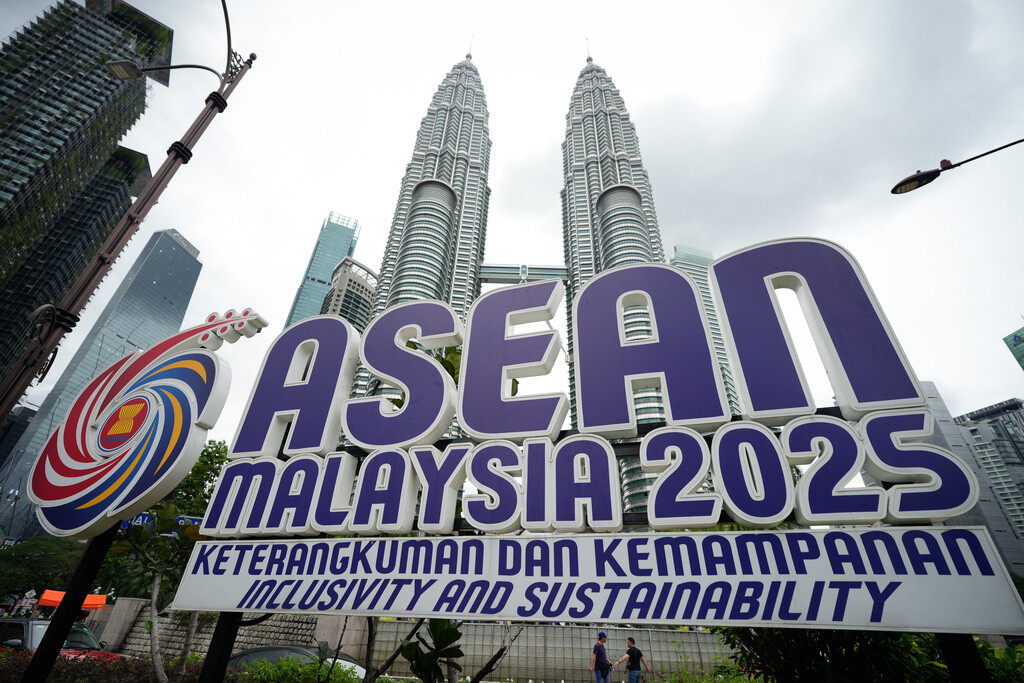
Kuala Lumpur, Malaysia - The 47th Association of Southeast Asian Nations (ASEAN) Summit commenced its three-day session in Kuala Lumpur, Malaysia, on October 26, under the theme of "Inclusivity and Sustainability." Bringing together leaders from over 20 nations, the summit agenda is dominated by critical discussions on regional trade negotiations, particularly with the United States, and formulating a cohesive strategy to combat escalating transnational criminal organizations.
Malaysian Prime Minister Anwar Ibrahim, the host and current ASEAN Chair, set a pragmatic tone in his opening address. He noted the increasing competitive landscape and rising uncertainty across various regions. Implicitly referencing the protectionist measures such as the US's tariff policies, he stressed the importance of adaptation amidst "deepening protectionism and shifts in the supply chain." Ibrahim urged member states to demonstrate the "courage to forge new partnerships and the foresight to deepen existing ones."
A central focus of the diplomatic efforts during the summit is trade. Reports indicate that leaders are prioritizing negotiations with the US delegation on tariffs. US President Donald Trump, who arrived in Kuala Lumpur for the summit, formalized agreements with his counterparts from Thailand, Malaysia, and Cambodia. Under these pacts, the US is set to maintain a 19 percent tariff rate on the majority of imports from these three nations. In the case of Vietnam, the US is reportedly maintaining a reciprocal 20 percent tariff but will eliminate duties on specific product categories.
Concurrently, ASEAN is actively pursuing intra-regional trade liberalization. The bloc is hosting the 5th Regional Comprehensive Economic Partnership (RCEP) Leaders' Summit, involving 15 participating countries. Furthermore, ASEAN plans to revitalize regional commerce by revising the ASEAN Trade in Goods Agreement, the bloc's internal free trade accord.
Another critical item on the agenda is the mounting threat of transnational organized crime, specifically the proliferation of online scam and fraud syndicates operating primarily out of Cambodia, Laos, Myanmar, and Thailand. Following earlier international actions, including sanctions imposed by the US and UK on companies running these criminal compounds and pressure from countries like South Korea on Cambodia to crack down, leaders are expected to announce concrete measures to eradicate these online fraud operations. This builds upon last month's "Ministerial Meeting on Transnational Crime," where ASEAN agreed to establish a working group on preventing illegal money laundering by criminal groups and to enhance cross-border surveillance cooperation.
In a landmark decision, the summit officially ratified the membership of Timor-Leste. With a population of 1.4 million, the country becomes the 11th member of ASEAN, joining Brunei, Cambodia, Indonesia, Laos, Malaysia, Myanmar, the Philippines, Singapore, Thailand, and Vietnam. This expansion marks a significant moment for the bloc's commitment to regional cohesion.
President Trump's visit began with a signing ceremony for a ceasefire agreement between Thailand and Cambodia. The two countries had previously agreed in July to halt a period of armed conflict, mediated by the US and Malaysia, with the formal signing ceremony deferred until the summit.
[Copyright (c) Global Economic Times. All Rights Reserved.]





























